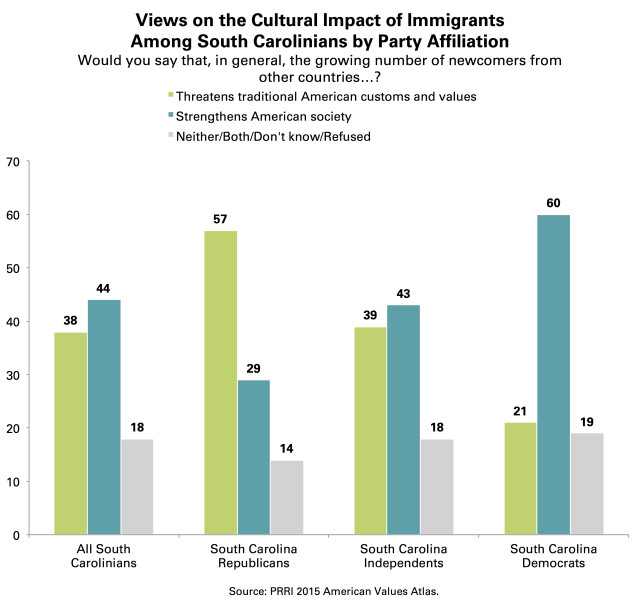Donald Trump has never been one to shy away from verbal altercations. After Pope Francis not so subtly suggested that a person who is solely focused on building walls to keep people out instead of bridges to unite communities was “not Christian,” Trump responded saying that the comments were “disgraceful.”
At first glance, taking on the pontiff so directly may seem like a risky bet, as Pope Francis is much more popular than the average politician or presidential candidate. Nine in ten (90 percent) American Catholics and two-thirds (67 percent) of the public overall express a favorable opinion of the pontiff. The pope is also considerably more popular among the American public than Trump himself. Fewer than one in three (31 percent) Americans report having a favorable view of Trump.
That said, there are a couple reasons why criticizing the pope, particularly on the issue of immigration, may not undermine his efforts in Saturday’s South Carolina primary.
First, very few Republicans in South Carolina are Catholic. PRRI’s American Values Atlas finds that 12 percent of Republicans in the Palmetto State identify as Catholic.
Second, half (50 percent) of Republicans in South Carolina identify as white evangelical Protestant, a group that expresses much more ambivalent views about the pope. Only about half (51 percent) of white evangelical Protestants have a favorable view of Pope Francis.
Third and perhaps most importantly, when it comes to views of immigrants, South Carolina Republicans express views that more closely align with Trump than the pope. South Carolina Republicans are much more likely to believe that immigrants threaten American values than they are to believe that they strengthen American society (57 percent vs. 29 percent, respectively). And while half (50 percent) of the self-identified Republicans in South Carolina favor providing a path to citizenship for immigrants living in the U.S. illegally, more than one-third (34 percent) say that all illegal immigrants should be identified and deported.
Explore the immigration portal of PRRI’s American Values Atlas, updated with more than 42,000 interviews from 2015, to see where each state, U.S. Census area, and 30 major metropolitan areas stand on immigrants’ economic contributions and immigration reform.





